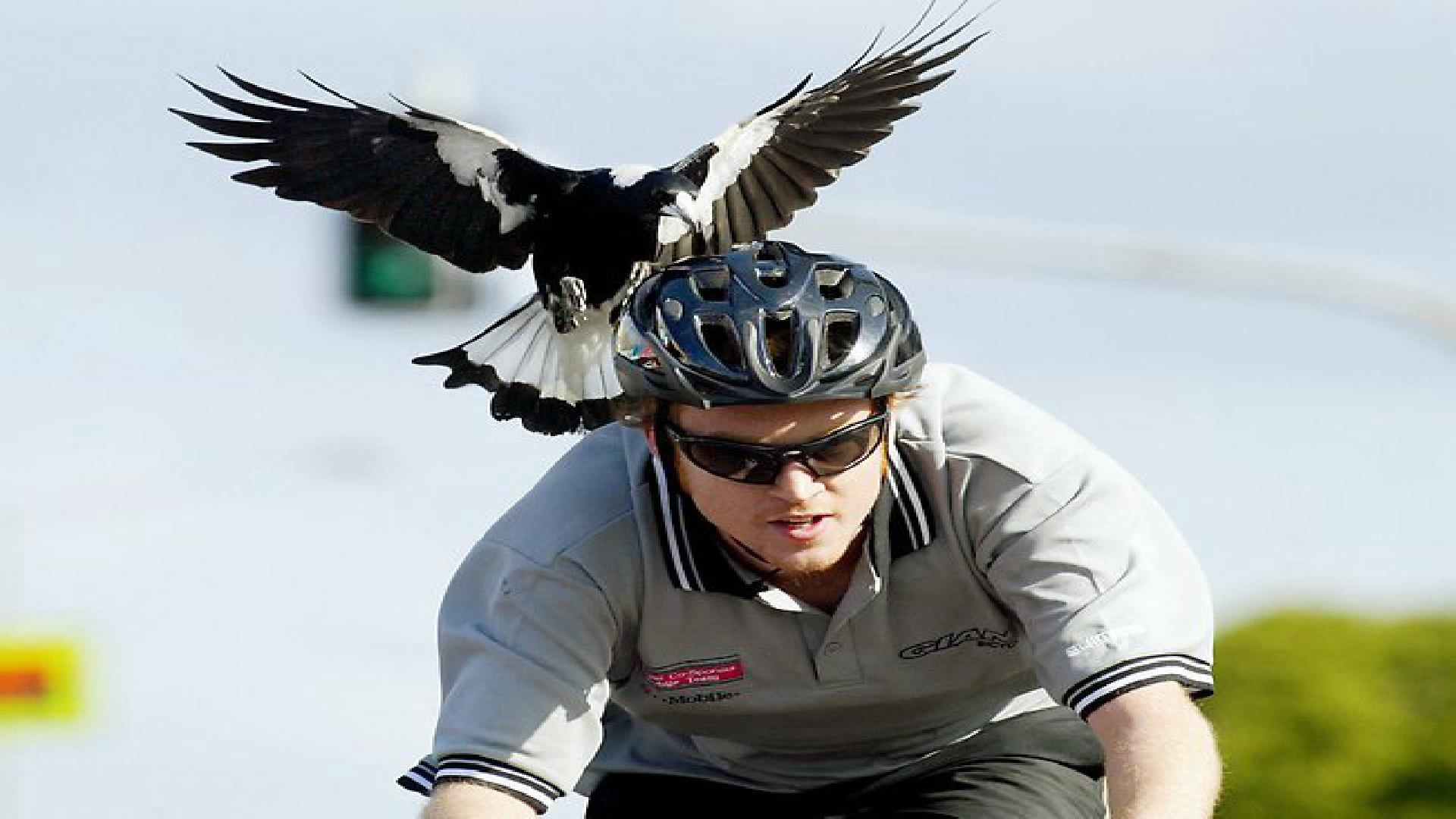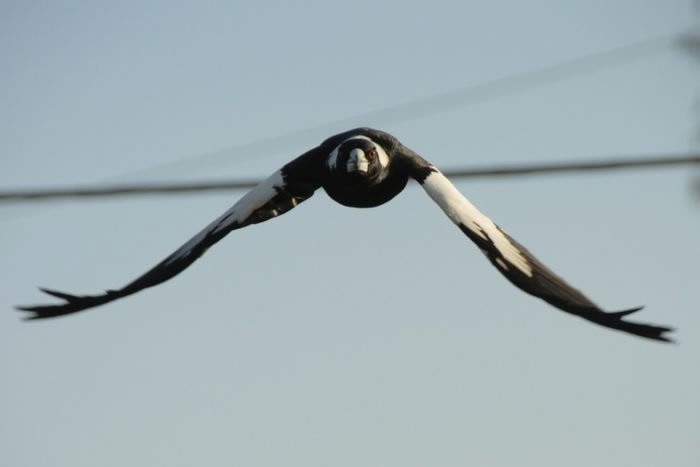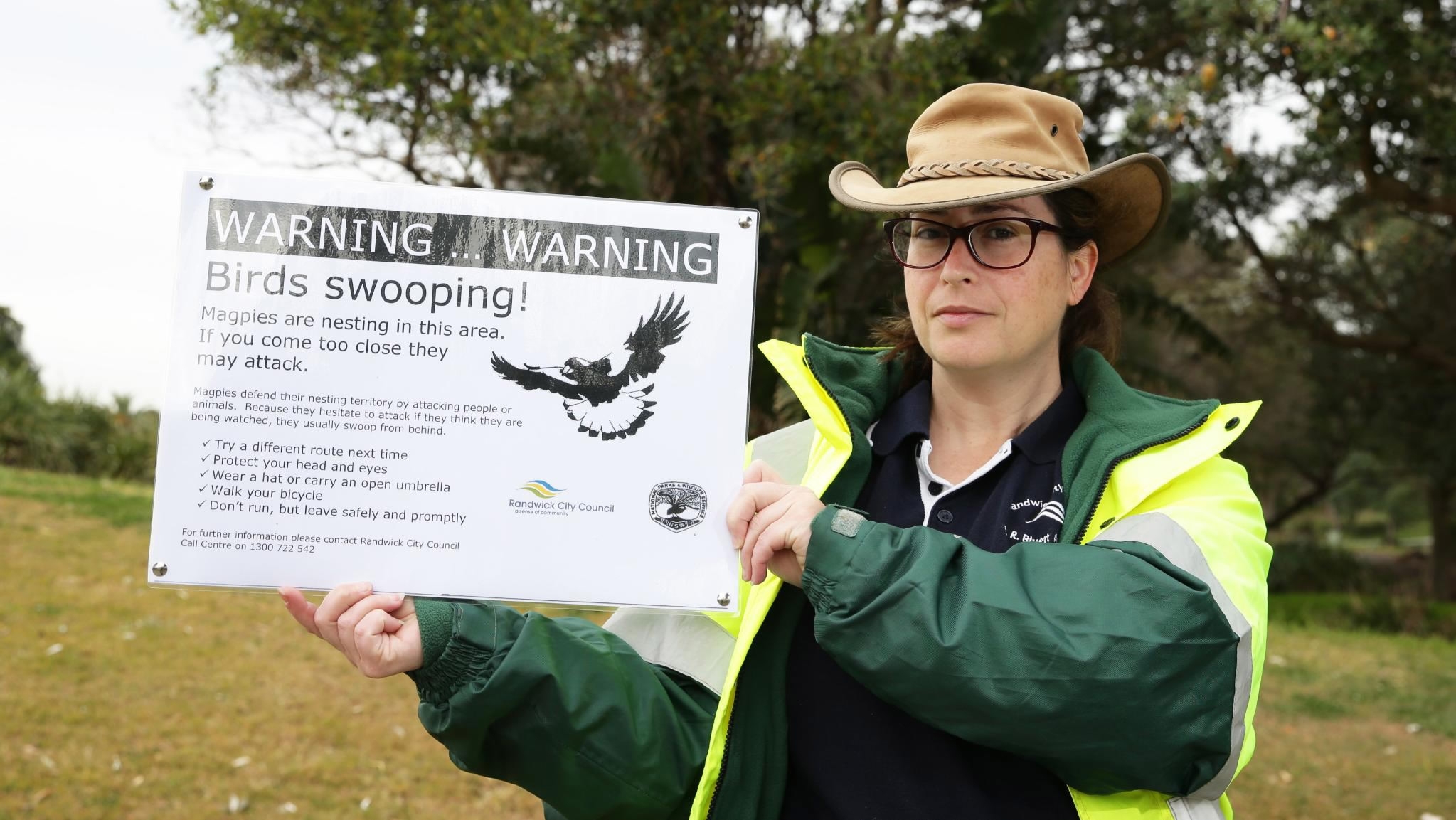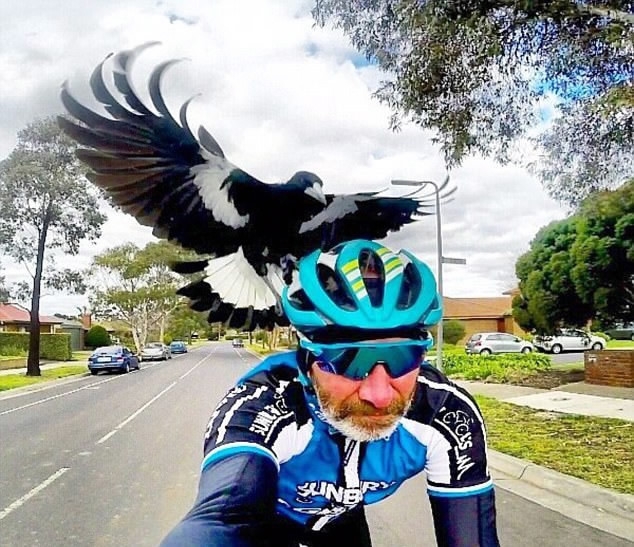
Culture
20:00, 31-Aug-2017
Magpie swooping season begins in Australia with bird attacks
CGTN

As winter draws to a close in Australia, it brings with it the sunny skies and pristine weather conditions that see tourists from around the world flock to the country to take advantage of the shifted seasons in the southern hemisphere.
But, every year at this time is also the season that every Australian walking down tree-filled paths dreads – the beginning of the magpie swooping season.
Australian magpie, a bird native to Australia, is – according to official reports from the Australian government – able to smell fear, and swoop in and attack any animal, including humans, who get too close to their nests during their breeding season which runs from late August to October.

Swooping magpies are common in Australia. /Photo taken by Roman Joost
Swooping magpies are common in Australia. /Photo taken by Roman Joost
Magpies have large, pointed beaks, and use them to attack unwitting pedestrians, and their animals – with many people already reporting injuries due to the ferocious nature with which these bombarding birds behave.
This has led to Australians devising a number of methods to deal with the aerial onslaughts, from wearing ice cream containers on their heads with drawn-on eyes, to simply waving a stick above their heads to appear larger as they run fearfully from the dive-bombing birds.
In fact, a dedicated twitter feed and website – magpiealert.com – has been established to document all reported attacks, with hundreds of posts daily that are then compiled into a map for those who wish to avoid being hit as they go about their day.
"Magpie swooped a kid on a bike in front of me – riding downhill from the tunnel on Fernleigh track before the water fountain," user Judy Gray reported on Thursday.
"Magpie swooped and hit me on my helmet. This bird generally hangs out near Ahern and Oak street intersection and has injured riders in the past," another user reported from the state of Queensland.

A Sydney’s Randwick Council ranger with one of the warning signs. /AAP Photo
A Sydney’s Randwick Council ranger with one of the warning signs. /AAP Photo
However, even as media reports across Australia have warned people to be vigilant of the threat of these "dangerous birds," Professor Gisela Kaplan from the University of New England, a world-renowned expert in their behavior, told Xinhua on Thursday that the birds are not attacking, but rather, trying to warn people to stay away.
"Swooping behavior is a defensive behavior and a warning. A warning to others to say that you are getting too close to the nest," Kaplan said.
"If people do nasty things to them – than they do attack."
Kaplan, who wrote a bestselling book about the Australian magpie, said that magpies were highly intelligent creatures who before nesting undertake a risk-assessment profile of their surroundings, and will note the characteristics of people and their pets, and not swoop them despite them being within their nesting territory.
"If you have a nest of magpies in your backyard, they have built the nest with the knowledge that you are there, and they have assessed you as a low-risk person," Kaplan said. "They will then never swoop, or do any warning swoops because they know you live there."

A magpie attacks cyclist Matt Stacey. /Photo via Matt Stacey's Instagram
A magpie attacks cyclist Matt Stacey. /Photo via Matt Stacey's Instagram
The trouble begins though when magpies nest in public areas according to Kaplan and are exacerbated by the fact that if someone does mistreat, or intentionally tries to harm a magpie, the territorial birds are able to remember the faces, and characteristics of that person years later, and will attack on sight.
"They recognize individual faces. So if you went out of your way five years ago, and really did something nasty to a magpie and you showed your face in that area again, they will know exactly who you are and what you have done years ago," Kaplan said.
"So, if in that area there happened to be people that looked pretty much like you, and had your height, they have a permanent dislike of that kind of stature, or hair color, or whatever else. So most of the aggression is human made."
When in an area that magpies frequently nest in, such as public parks, or other areas with an abundance of trees, Kaplan said that the best course of action is to listen for the signs, notice the direction of where the magpie is swooping from, and leave the area peacefully.
Source(s): Xinhua News Agency

SITEMAP
Copyright © 2018 CGTN. Beijing ICP prepared NO.16065310-3
Copyright © 2018 CGTN. Beijing ICP prepared NO.16065310-3